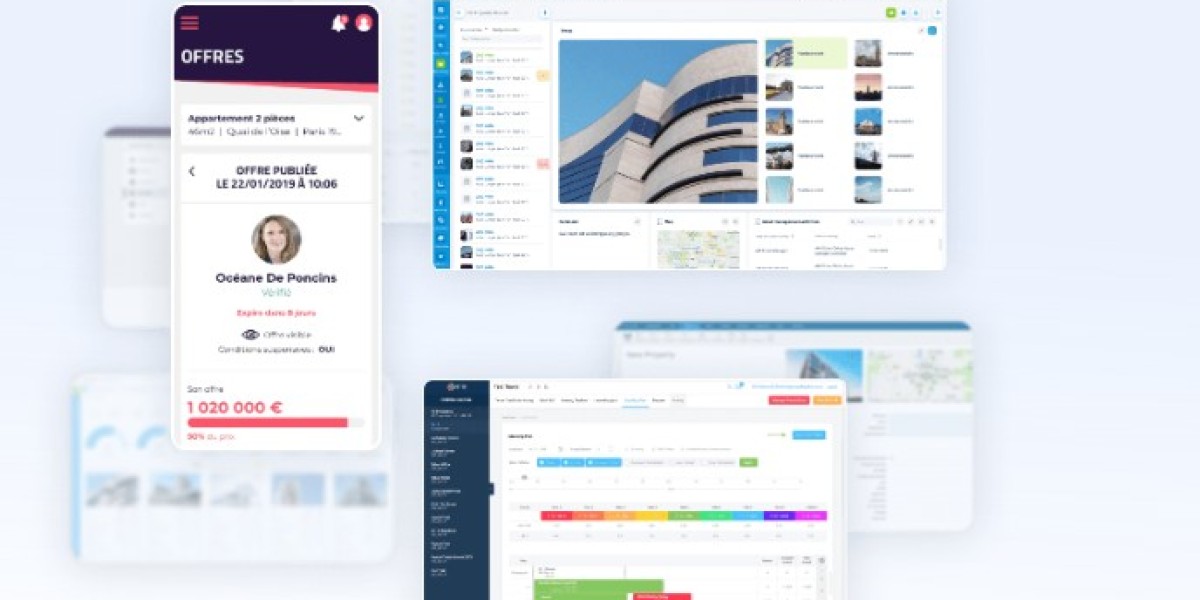In today’s digital age, the real estate industry is undergoing a significant transformation driven by technological advancements. Custom software solutions tailored to meet the specific needs of real estate businesses have become essential tools for driving efficiency, enhancing customer experiences, and ultimately fueling business growth. This article explores several successful case studies of custom real estate software development and their profound impact on business growth.
The Importance of Custom Software in Real Estate
Before diving into the case studies, it's essential to understand why custom software solutions are critical in the real estate sector. Unlike off-the-shelf software, which often lacks the flexibility and scalability required to meet the unique demands of a real estate business, custom solutions provide tailored functionalities that align with specific operational processes and business objectives.
Benefits of Custom Software Solutions:
- Enhanced User Experience: Custom software can be designed with the end-user in mind, providing an intuitive interface and seamless experience.
- Improved Efficiency: Tailored solutions streamline processes, reduce manual work, and increase overall operational efficiency.
- Scalability: As businesses grow, custom solutions can be easily modified to accommodate increased demands.
- Integration Capabilities: Custom software can integrate with existing tools and platforms, providing a cohesive ecosystem that improves data flow and communication.
Case Study 1: Zillow – Redefining Property Search with Custom Solutions
Background:
Zillow, one of the largest online real estate databases, faced challenges in managing the vast amounts of data generated from listings, user interactions, and market trends. With millions of users accessing the platform daily, Zillow needed a robust system to improve search capabilities and enhance user experience.
Solution:
Zillow invested in a custom-built data analytics platform capable of processing massive datasets in real time. The platform utilized advanced algorithms and machine learning to refine property search functionalities, allowing users to filter properties based on various criteria, such as price, location, amenities, and more.
Impact on Business Growth:
- Increased User Engagement: The improved search capabilities led to higher user engagement, with users spending more time on the platform.
- Enhanced Lead Generation: With more tailored search options, Zillow saw a significant increase in qualified leads for real estate agents and listings.
- Market Leadership: The custom solution helped Zillow establish itself as a market leader in the online real estate space, capturing a significant share of the market.
Case Study 2: Redfin – Revolutionizing Real Estate Transactions
Background:
Redfin, a technology-powered real estate brokerage, aimed to streamline the home buying and selling process. Traditional methods often involved cumbersome paperwork and lack of transparency, frustrating both buyers and sellers.
Solution:
Redfin developed a custom transaction management software that digitized the entire process. This platform allowed users to manage listings, schedule viewings, and complete paperwork online. Additionally, Redfin integrated real-time communication tools, enabling buyers, sellers, and agents to stay connected throughout the process.
Impact on Business Growth:
- Faster Transactions: The digitization of paperwork and processes reduced transaction times by up to 30%.
- Improved Customer Satisfaction: Customers reported higher satisfaction levels due to the transparency and ease of communication, leading to increased referrals and repeat business.
- Market Expansion: Redfin's innovative approach allowed it to expand into new markets quickly, growing its presence in cities across the United States.
Case Study 3: Compass – AI-Driven Insights for Agents
Background:
Compass, a modern real estate technology company, wanted to empower agents with data-driven insights to improve their sales strategies. Traditional methods of market analysis were time-consuming and often relied on outdated information.
Solution:
Compass developed a custom AI-driven analytics platform that provided agents with real-time market trends, property valuations, and predictive analytics. This software integrated seamlessly with the agents' existing tools, enhancing their ability to make informed decisions.
Impact on Business Growth:
- Data-Driven Decision Making: Agents equipped with real-time insights were able to make faster and more accurate decisions, improving their sales performance.
- Increased Revenue: The ability to identify lucrative opportunities and market trends led to a significant increase in revenue for agents and the company.
- Agent Retention: Compass's investment in technology resulted in higher agent satisfaction and retention rates, creating a stable and motivated workforce.
Case Study 4: Propertybase – Comprehensive CRM Solutions for Real Estate
Background:
Propertybase, a CRM solution designed specifically for the real estate industry, aimed to provide real estate professionals with tools to manage their clients, listings, and marketing efforts effectively. The challenge was to create a solution that was both powerful and user-friendly.
Solution:
Propertybase developed a comprehensive CRM platform that offered custom features such as lead tracking, property management, and marketing automation. The platform could be tailored to fit the unique workflows of different real estate businesses, from small agencies to large brokerages.
Impact on Business Growth:
- Streamlined Operations: The custom CRM allowed real estate agents to manage their workflows more efficiently, reducing administrative overhead and allowing them to focus on sales.
- Higher Conversion Rates: With effective lead management and marketing tools, businesses using Propertybase saw an increase in lead conversion rates, leading to higher sales.
- Scalable Solutions: As businesses grew, Propertybase’s customizable nature allowed it to adapt to changing needs, enabling companies to scale effectively.
Case Study 5: Opendoor – Simplifying Home Sales with Technology
Background:
Opendoor, a real estate technology company that buys and sells homes, sought to simplify the home selling process. Traditional home sales could be stressful and complicated, often requiring extensive negotiations and lengthy timelines.
Solution:
Opendoor created a custom software platform that allowed homeowners to request offers online. The platform used algorithms to evaluate properties and provide instant cash offers, significantly simplifying the selling process.
Impact on Business Growth:
- Rapid Transactions: Homeowners could complete sales in a fraction of the time compared to traditional methods, enhancing customer satisfaction.
- Increased Market Reach: The ease of use attracted more sellers, allowing Opendoor to expand its market presence rapidly.
- Business Growth: Opendoor's innovative approach has led to significant funding and expansion, positioning it as a major player in the real estate market.
Key Takeaways from the Case Studies
The case studies above highlight the transformative power of custom software solutions in the real estate industry. Here are some key takeaways:
- Tailored Solutions Drive Engagement: Custom software tailored to the needs of users enhances engagement and satisfaction, leading to better business outcomes.
- Efficiency is Key: Streamlining processes through technology not only saves time but also reduces costs, making businesses more competitive.
- Data-Driven Decisions: Access to real-time data and analytics empowers professionals to make informed decisions, increasing sales and improving service delivery.
- Scalability is Essential: Custom solutions can grow with a business, ensuring that companies can adapt to changing market conditions and consumer demands.
Conclusion
As the real estate industry continues to evolve, the importance of custom software solutions cannot be overstated. The success stories of companies like Zillow, Redfin, Compass, Propertybase, and Opendoor illustrate the significant impact that tailored technology can have on business growth. By investing in custom solutions, real estate businesses can enhance efficiency, improve customer experiences, and ultimately drive substantial growth in a competitive market.






